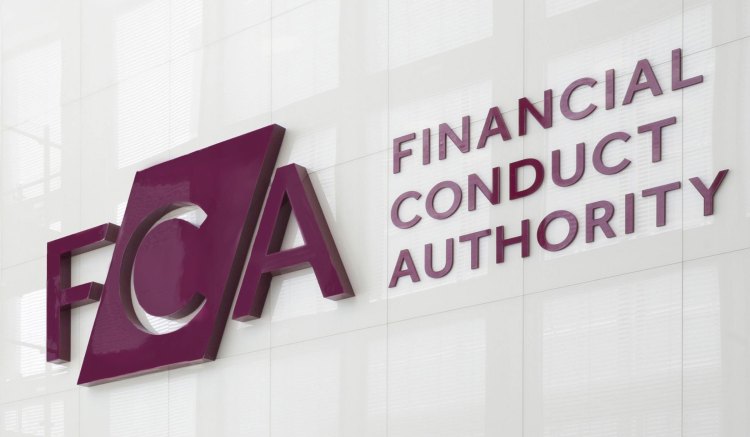Advertising is based on hypotheticals. ‘Buy our anti-ageing serum and you could look ten years younger’ or ‘join our gym, maybe you’ll get the body you always wanted’ and even ‘drink this soft drink and it could lead to a utopia‘ – ads play on possibility and aspiration to drive desired outcomes.
But there are considerable legal expectations and regulations around how advertising leverages these hypotheticals, and these exist for a good reason: to protect consumers from being misled and purchasing products that aren’t suitable for them. The Securities and Exchange Commission (SEC)’s Marketing Rule is a good example of regulation that exists to ensure advertising doesn’t stray too far into the hypothetical – and one that is being used to hold firms accountable for potentially misleading marketing communications.
Works as advertised
An announcement from the SEC on 11th September, 2023, detailed charges raised against nine registered investment advisors (RIAs) for advertising “hypothetical performance to the general public on their websites”. All the firms have agreed to settle the charges (without admitting or denying them) and to pay $850,000 in combined fines.
The press release states that RIAs are not allowed to include “any hypothetical performance in their advertisements” unless they have put policies in place “reasonably designed to ensure that the hypothetical performance is relevant to the likely financial situation and investment objectives of the intended audience”.
By hosting the advertising that contained hypothetical performance information on their websites, the RIAs communicated it to a “mass audience” – one that would have included people whose “financial situation and investment objectives” the hypothetical content would not have been relevant to, which introduces the risk that they would have been misled.
In his summary of the actions, Gurbir S. Grewal, Director of the SEC’s Division of Enforcement, said:
“Because of their attention-grabbing power, hypothetical performance advertisements may present an elevated risk for prospective investors whose likely financial situation and investment objectives don’t match the advertised investment strategy … it is therefore crucial that investment advisers implement policies and procedures to ensure their compliance with the rule. Until that is the case, we will remain vigilant and continue our ongoing sweep to ensure that investment advisers comply with the Marketing Rule, including the requirements for hypothetical performance advertisements.”
A long running campaign
While this action is the largest of its kind to date in terms of the number of RIAs involved, the path to this point has been a lengthy one – and the firms sanctioned absolutely had time to read the updated rulebook.
The Marketing Rule was brought into force towards the end of 2022 as an update to Advisers Act Rule 206(4)-1 (the first update to that act in 60 years). Before that, the SEC had implemented a two-year ‘grace period’ to allow organizations to do the due diligence to ensure they were playing by the new rules – meaning that the Marketing Rule has actually been well on the horizon for over three years.
As well as this adjustment period, the SEC issued not one, but two risk alerts to advise firms on the areas it would be assessing once the new rule came into effect – with both including clear information on expectations around the use of hypothetical performance information in advertising.
While this might seem like ample forewarning by itself, the nine RIAs also had a cautionary tale to learn from. In August, 2023, the SEC charged Titan Global Capital Management USA LLC, a New York-based FinTech investment adviser, for breaching the Marketing Rule by using “hypothetical performance metrics in advertisements that were misleading”. These misleading claims included hypothetical performance results of its Titan Crypto strategy that went as high as 2,700 percent annually.
The first violation of the Marketing Rule resulted in Titan agreeing to pay $192,454 in disgorgement, prejudgment interest, and an $850,000 civil penalty, a combined total of over $1 million for the breach. In a statement, Osman Nawaz, SEC Chief of Enforcement’s Complex Financial Instruments Unit, said:
“The Commission amended the marketing rule to allow for the use of hypothetical performance metrics, but only if advisers comply with requirements reasonably designed to prevent fraud … Titan’s advertisements and disclosures painted a misleading picture of certain of its strategies for investors. This action serves as a warning for all advisers to ensure compliance.”
Clearly, this warning wasn’t loud enough for the nine organizations found to be in breach of the Marketing Rule in this latest case.
Keeping it on the record
Interestingly, the SEC’s ruling also identifies that two of the firms charged (Macroclimate and MRA Advisory Group) also violated the Marketing Rule because they failed to keep records of their advertisements, as stipulated by the regulation.
The rule specifies that:
“Advisers Act Rule 204-2 (Books and Records Rule), as amended, will require investment advisers to make and keep certain records, such as records of all advertisements they disseminate, including certain internal working papers, performance related information, and documentation for oral advertisements, testimonials, and endorsements.”
This plays into the wider regulatory expectations around recordkeeping. We’ve seen several recent examples of large firms failing in their recordkeeping requirements, including Goldman Sachs, Citigroup, and J.P. Morgan, and the expectations around marketing communications and recordkeeping are just as high. An SEC statement on updates to electronic recordkeeping requirements from October, 2022 highlights why regulators take such a dim view of recordkeeping lapses:
“Recordkeeping is not an especially flashy topic. However, for regulators, a robust recordkeeping regime is fundamental to our ability to oversee our regulated entities. Without accurate and complete records, it is difficult or impossible to assess compliance with our rules.”
Regulators can’t regulate what they can’t see, and will penalize those they feel are keeping records from being reviewed, through act or omission. Companies need to ensure they’re recording all of their advertising materials across their marketing channels to evidence that they are in full compliance with the Marketing Rule. This expands beyond traditional marketing channels to emerging technologies, such as social media and IM. The SEC wants to see records of how products are marketed across all platforms, meaning that firms must capture information across all platforms too. With the SEC confirming that it “will remain vigilant and continue [its] ongoing sweep” when it comes to enforcing the Marketing Rule, firms need to make sure they’ve read the rulebook and brought their marketing activities (and record retention) in line with expectations. If you’re not capturing marketing communications, you’re not compliant, and when it comes to the question of whether you’re compliant or not, it’s never hypothetical.




